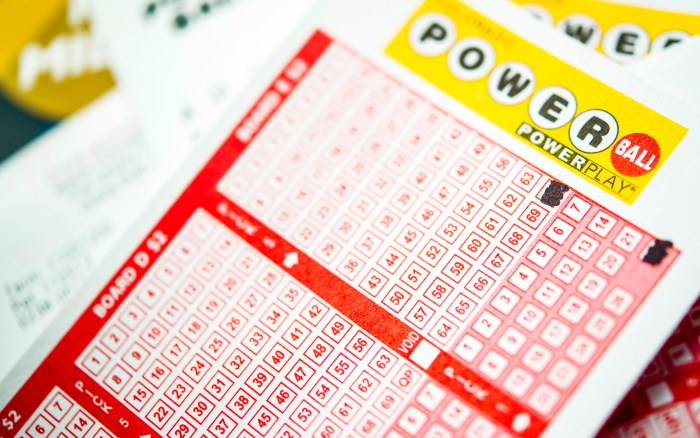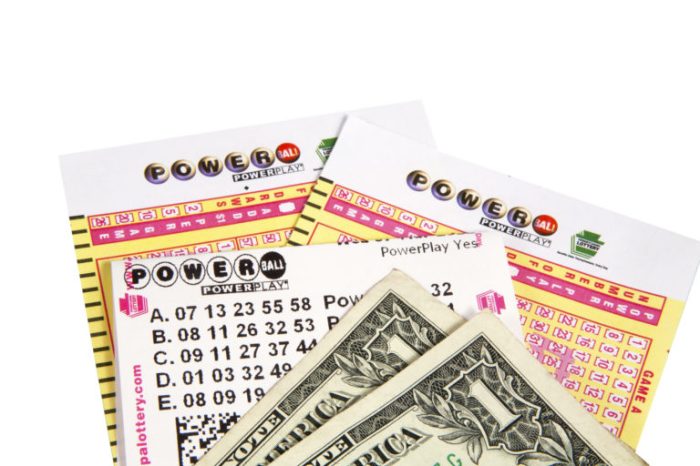Purchasing state lottery tickets is reinforced, a phenomenon that has garnered significant attention. This practice involves reinforcing behaviors that increase the likelihood of purchasing lottery tickets. Understanding the psychological mechanisms behind this reinforcement is crucial, as it can influence behavior and purchasing patterns.
This comprehensive analysis delves into the various factors that contribute to the reinforcement of lottery ticket purchases, including psychological mechanisms, types of reinforcement, the role of expectation, cognitive biases, and social and cultural factors. By examining these elements, we gain a deeper understanding of the complexities surrounding this behavior.
Reinforcing Factors
Purchasing state lottery tickets is reinforced through various mechanisms that increase the likelihood of repeated behavior.
Positive reinforcement:When purchasing a lottery ticket results in a win, even a small one, it reinforces the behavior by providing a tangible reward. This positive outcome increases the probability of purchasing tickets in the future.
Negative reinforcement:Lottery tickets can also be purchased as a way to avoid negative consequences, such as boredom or feelings of hopelessness. By engaging in the activity, individuals can temporarily escape unpleasant emotions and potentially experience a sense of excitement or anticipation.
Intermittent reinforcement:The unpredictable nature of lottery winnings creates a variable reinforcement schedule. This means that rewards are not always delivered, but the occasional wins maintain the behavior because individuals continue to hope for a future payout.
Types of Reinforcement
Different types of reinforcement can influence lottery ticket purchasing behavior:
- Primary reinforcement:Involves basic biological needs, such as food or shelter. Lottery winnings can provide financial security and improve living conditions.
- Secondary reinforcement:Associated with learned rewards, such as money or praise. Lottery winnings can provide a sense of accomplishment or social status.
Positive reinforcement:Adds something pleasant to the situation, such as winning money. Negative reinforcement:Removes something unpleasant from the situation, such as boredom.
Reinforcement schedules also impact purchasing patterns:
- Fixed-ratio schedule:A reward is given after a specific number of responses (e.g., buying 10 tickets to win a prize).
- Variable-ratio schedule:A reward is given after an unpredictable number of responses (e.g., winning a prize after purchasing a random number of tickets).
Role of Expectation

Expectations play a crucial role in reinforcing lottery ticket purchases:
Perceived chances of winning:Individuals may overestimate their chances of winning, leading to increased ticket purchases. This is influenced by factors such as advertising and media portrayals.
Positive outcomes:Focusing on stories of lottery winners can create a sense of optimism and encourage continued purchases.
Negative outcomes:Downplaying the odds of winning and highlighting the negative consequences of gambling can discourage ticket purchases.
Cognitive Biases

Cognitive biases contribute to the reinforcement of lottery ticket purchases:
- Illusion of control:Individuals may believe they can influence the outcome of a random event, such as a lottery draw.
- Gambler’s fallacy:The belief that past outcomes affect future outcomes, leading to increased purchases after a losing streak.
- Cognitive dissonance:Individuals may purchase tickets to reduce the discomfort caused by the inconsistency between their beliefs and actions.
Social and Cultural Factors: Purchasing State Lottery Tickets Is Reinforced

Social and cultural factors influence lottery ticket purchasing behavior:
- Social norms:In some cultures, lottery participation is seen as socially acceptable or even encouraged.
- Traditions:Lotteries may be tied to cultural traditions or holidays.
- Beliefs:Religious or spiritual beliefs can influence attitudes towards gambling and lottery participation.
Questions and Answers
What are the primary mechanisms behind the reinforcement of lottery ticket purchases?
The reinforcement of lottery ticket purchases is primarily driven by psychological mechanisms such as positive reinforcement, where rewards (e.g., winning money) increase the likelihood of repeating the behavior (purchasing tickets), and negative reinforcement, where aversive consequences (e.g., losing money) decrease the likelihood of the behavior.
How do cognitive biases contribute to the reinforcement of lottery ticket purchases?
Cognitive biases, such as the illusion of control and the gambler’s fallacy, can distort individuals’ perceptions and lead them to overestimate their chances of winning and underestimate the risks associated with lottery ticket purchases.
What role do social and cultural factors play in the reinforcement of lottery ticket purchases?
Social and cultural factors, such as social norms, traditions, and beliefs, can influence individuals’ attitudes and behaviors toward lottery ticket purchases. For example, in some cultures, lottery playing is seen as a form of entertainment or a way to contribute to charitable causes.